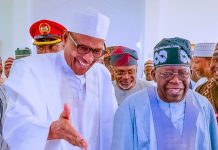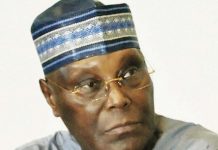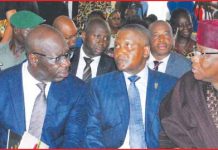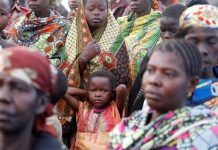A tough football match usually ends in a goalless or 1-1 draw. Sometimes, the rule of penalty kicks will be applied to break the tie. The analogy from the above translates to holding a run-off between two top contestants in a tough election. And that is the emerging scenario in Sierra Leone where preliminary results in last Wednesday’s presidential election show that the main opposition candidate, Julius Bio, is slightly ahead of the ruling party candidate, Samura Kamara.
With about three-quarters of the votes counted, the country’s electoral commission said the candidate of the Peoples Party, SLPP, Julius Bio, had polled 15,000 votes ahead of his rival, Samura Kamara, the candidate chosen by the outgoing President Ernest Koroma.
According to partial results, Bio had 43.4 percent of the vote, while Kamara of the ruling All People’s Congress, APC, had 42.6 percent. The other two main candidates – Kandeh Yumkella and Samuel Sam-Sumana – garnered 7 percent and 3.4 percent, respectively.
It is widely believed that no candidate would garner the 55 percent needed to win the first round, implying that the vote will go to a run-off. This is fast becoming common in Africa, having occurred earlier in Kenya and Liberia.
President Ernest Koroma, who is stepping down after serving a maximum of two five-year terms in office, tipped his former Foreign Minister, Samura Kamara, 76, to run against 53-year-old Julius Bio. The two parties – APC and SLPP – have dominated politics in Sierra Leone since the West African country became independent from Britain in 1961.
A total of 16 candidates ran in the presidential polls last week. International observers including former Nigerian President, Goodluck Jonathan, have described the vote as generally transparent and credible, but noted that there had been concerns about intimidation and violence in some areas.


















